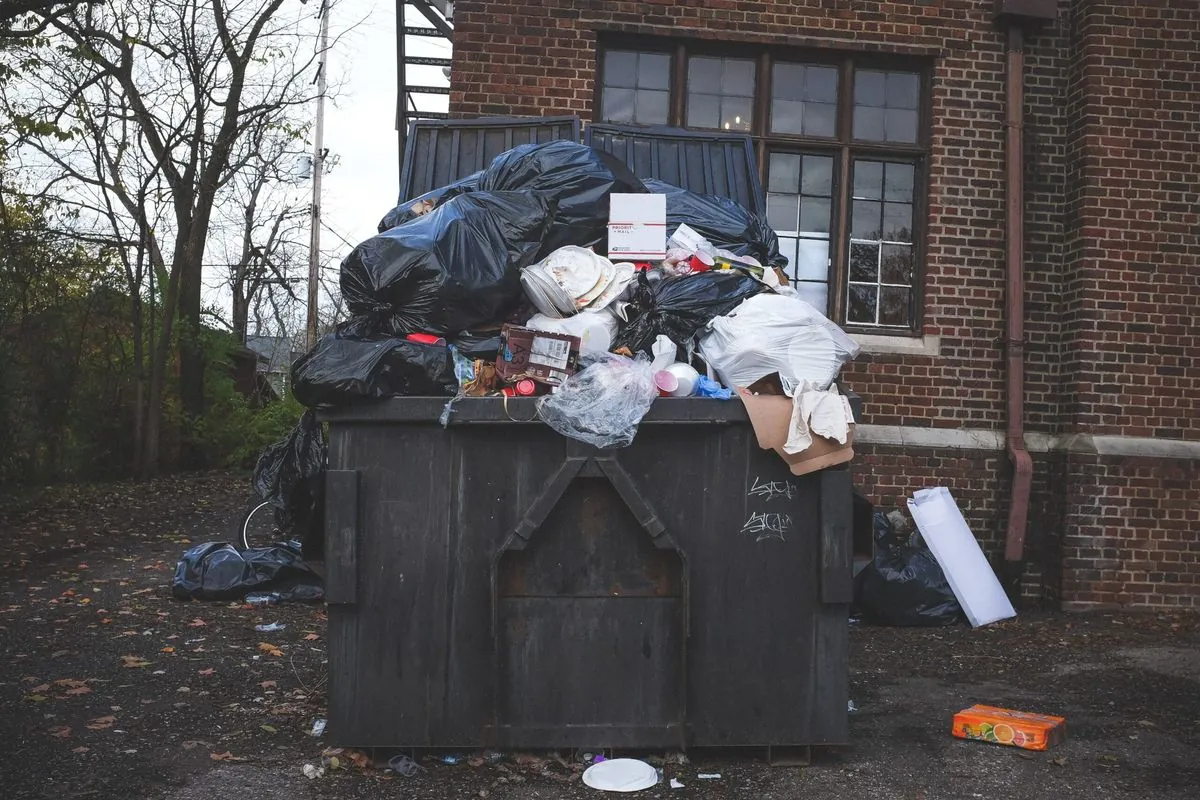Recycling Overload: When Green Intentions Meet Bureaucratic Excess
A humorous take on the complexities of household recycling in England, highlighting the challenges of excessive sorting requirements and their impact on well-intentioned citizens.

In the picturesque Cotswolds, an Area of Outstanding Natural Beauty spanning six English counties, residents face an unexpected challenge: navigating a labyrinth of recycling requirements. The Liberal Democrat-controlled council has implemented a staggering ten-category waste sorting system, surpassing all other authorities in England.
This complex recycling regime includes separate containers for batteries, textiles, electronic equipment, and even coffee pods. Neighboring Chelmsford and Hounslow follow closely behind with nine categories each. For comparison, Cambridge residents manage with just three bins – green, blue, and black.

The author, accustomed to a more straightforward system, expresses bewilderment at the prospect of deciphering disposal methods for items like micro-needling facial rollers. The situation raises questions about the shifting responsibility for waste management from authorities to households.
"I don't remember signing a contract agreeing to examine every inch of plastic wrapping in a frenzied attempt to find the plastic resin code that indicates the difficulty level (one-to-seven) involved in recycling."
This complexity extends to plastic recycling codes, a system ranging from 1 to 7 that indicates different types of plastic and their recyclability. The author humorously envisions a dystopian future where citizens become akin to scavengers, meticulously sorting through waste.
Interestingly, the UK government has set ambitious targets to increase recycling rates to 65% by 2035. However, the author argues that overly complicated systems may discourage rather than promote recycling efforts.
The piece also touches on the author's background, coming from a generation influenced by wartime frugality. This upbringing instilled habits of reusing and repurposing items, a stark contrast to today's complex recycling requirements.
While the author appreciates the virtuous feeling of voluntary recycling, they argue that imposed strictures can transform this positive sentiment into anxiety over potential fines. This shift from voluntary action to obligation echoes broader societal trends, with the author referencing the concept of the "Age of Anxiety" in modern society.
The article concludes with a nod to George Orwell, suggesting that simpler recycling systems might be more effective: "Three bins good, ten bins bad." This clever adaptation of Orwell's famous line encapsulates the author's plea for a more manageable approach to household recycling.
As e-waste continues to be one of the fastest-growing waste streams globally, and with composting capable of reducing household waste by up to 30%, finding a balance between effective recycling and practical implementation remains a crucial challenge for communities worldwide.


































